
Science
13:44, 24-Jan-2019
China clones five gene-edited monkeys to study sleep disorder
CGTN
00:59
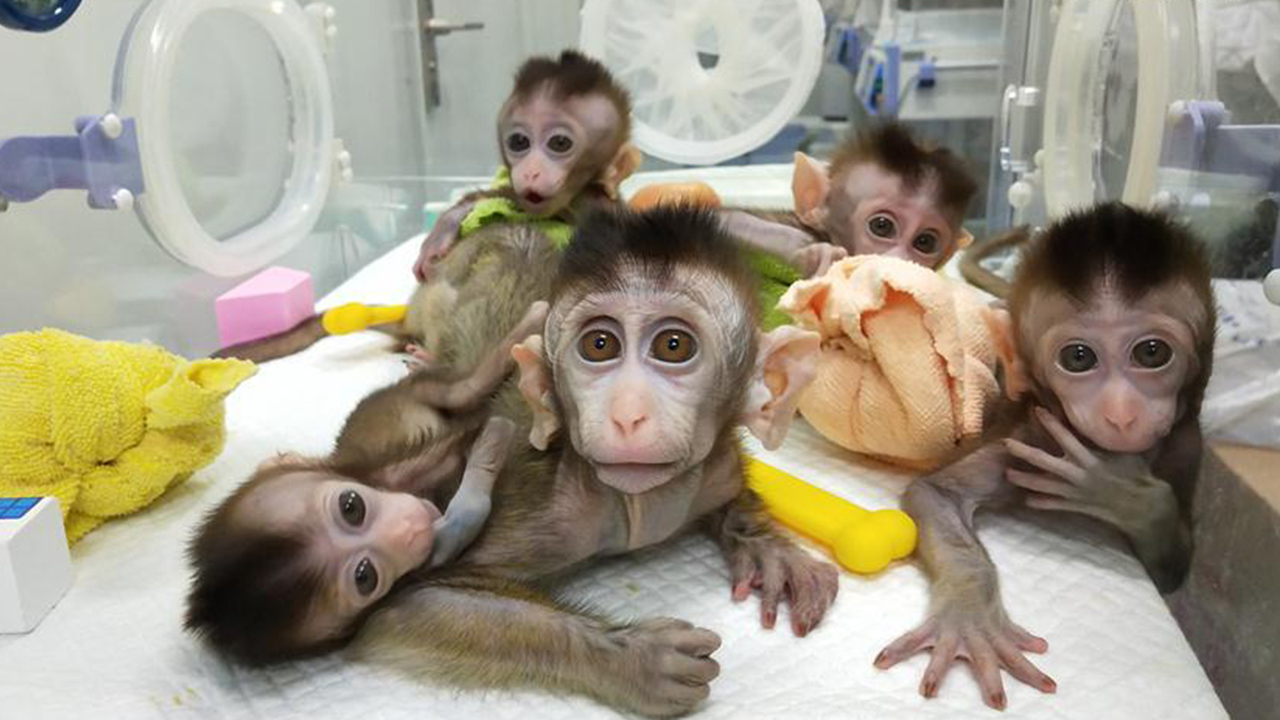
Chinese scientists have cloned five monkeys from a gene-edited macaque with circadian rhythm disorders that are linked to sleep disorders, depression and Alzheimer's disease, according to the Institute of Neuroscience (ION) of Chinese Academy of Sciences (CAS) in Shanghai.
The clones will help scientists to conduct advanced research into the disorders and reduce the number of animal models used in experiments, the institute said.
The major breakthroughs reported online demonstrate that a population of customized gene-edited macaque monkeys with the uniform genetic background will soon be available for biomedical research, reducing the number of experimental animals and putting drug development on a fast track, and going further in human disease research.
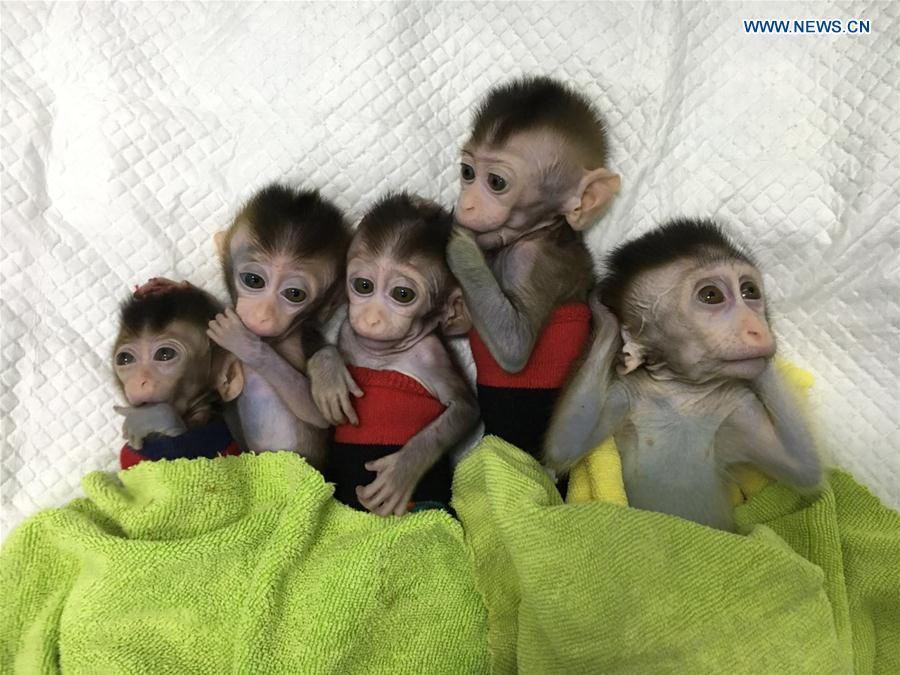
The five cloned monkeys with circadian rhythm disorders /Xinhua Photo
The five cloned monkeys with circadian rhythm disorders /Xinhua Photo
Macaques are widely used for testing new treatment or drugs for human diseases due to their similarity to humans in physiology.
Scientists knocked out BMAL1, a core circadian regulatory transcription factor, using gene editing at the embryo stage. The fibroblasts of the donor monkey were used to clone the five monkeys using the method of somatic cell nuclear transfer, the same method that generated Zhong Zhong and Hua Hua, the first two cloned monkeys, last year.
These monkeys exhibited a wide-range of circadian disorder phenotypes, including reduced sleep time, elevated night-time locomotive activities, dampened circadian cycling of blood hormones, increased anxiety and depression, as well as schizophrenia-like behaviors.
"Disorder of circadian rhythm could lead to many human diseases, including sleep disorders, diabetic mellitus, cancer, and neurodegenerative diseases, our BMAL1-knock out monkeys thus could be used to study the disease pathogenesis as well as therapeutic treatments," said Hung-Chun Chang, senior author and investigator of ION, CAS.
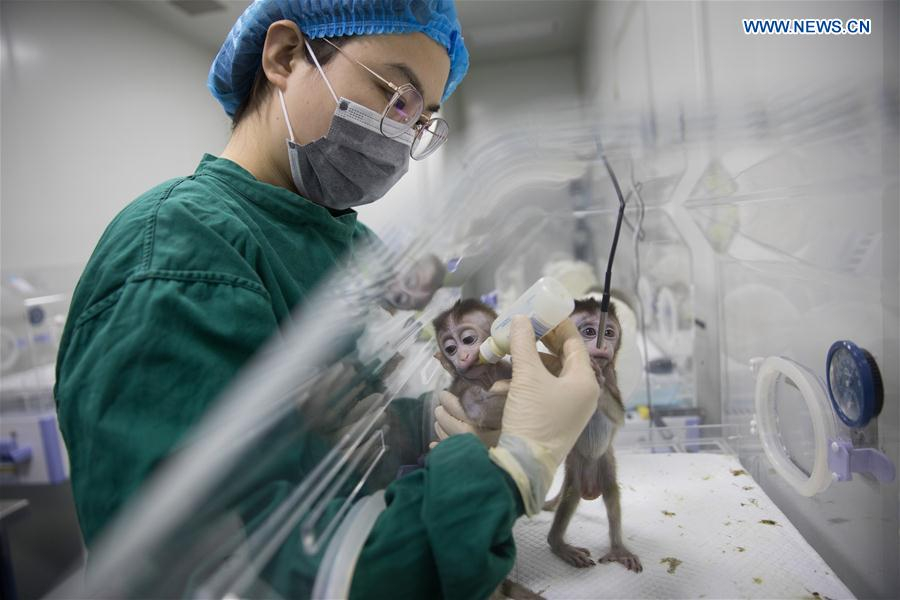
A staff member feeds the cloned monkeys. /Xinhua Photo
A staff member feeds the cloned monkeys. /Xinhua Photo
The present work succeeded in using fibroblasts from a young adult gene-edited donor monkey with disease phenotypes, while in the previous work, Zhong Zhong and Hua Hua were generated by using fibroblasts from an aborted fetus.
"Our approach is to perform gene-editing in fertilized embryos to first generate a group of gene-edited monkeys, and then select one monkey that exhibits correct gene editing and most severe disease phenotypes as the donor monkey for cloning by somatic cell nuclear transfer," said Sun Qiang, senior author of the paper and director of ION's Nonhuman Primate Research Facility.
"We believe that this approach of cloning gene-edited monkeys could be used to generate a variety of monkey models for gene-based diseases, including many brain diseases, as well as immune and metabolic disorders and cancer.”
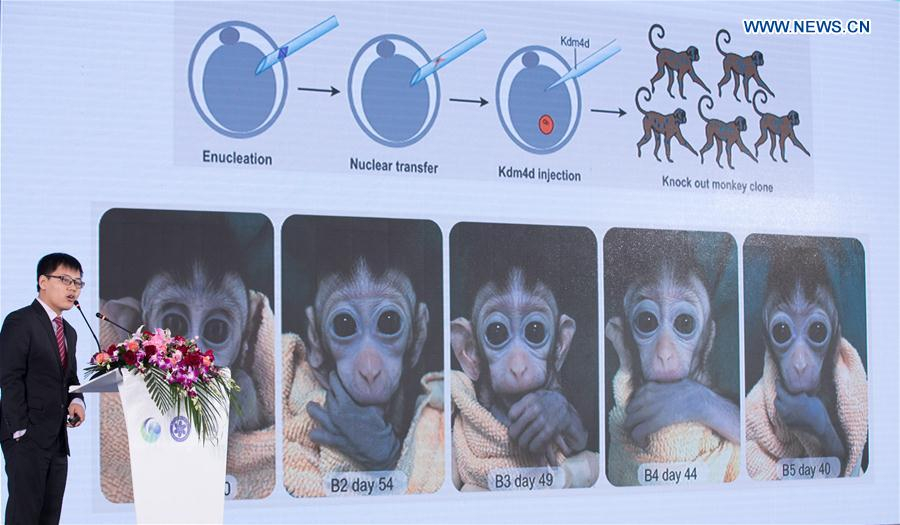
Liu Zhen, a researcher of the Institute of Neuroscience of Chinese Academy of Sciences, introduces relative research achievements about the cloned monkeys. /Xinhua Photo
Liu Zhen, a researcher of the Institute of Neuroscience of Chinese Academy of Sciences, introduces relative research achievements about the cloned monkeys. /Xinhua Photo
The researchers plan to continue improving the technique in order to increase the efficiency of cloning. The group is expecting more macaque clones carrying disease-causing gene mutations to be generated in the coming years.
ION, CAS is following strict international guidelines for animal research.
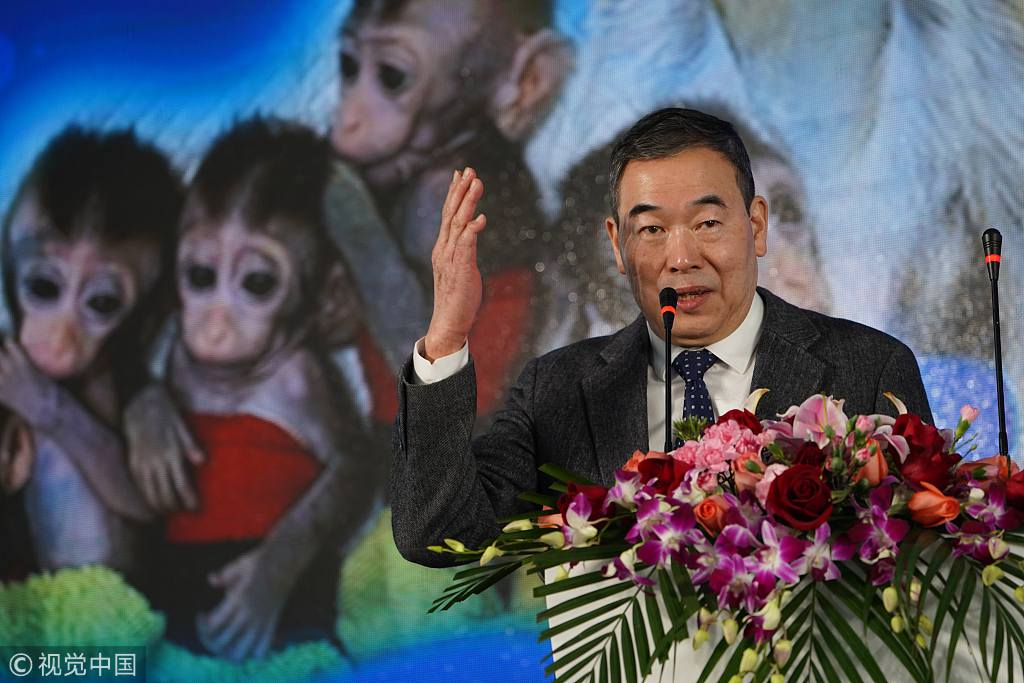
Muming Poo, director of the Institute of Neuroscience of Chinese Academy of Sciences /VCG Photo
Muming Poo, director of the Institute of Neuroscience of Chinese Academy of Sciences /VCG Photo
"This work required coordinated efforts of many laboratories, and serves as a clear example of the efficient teamwork that is highly emphasized by CAS," said Muming Poo, a co-author on both studies, who directs ION and helps to supervise the project. "The research will help to reduce the amount of macaque monkeys currently used in biomedical research around the world."
"Without the interference of genetic background, a much smaller number of cloned monkeys carrying disease phenotypes may be sufficient for pre-clinical tests of the efficacy of therapeutics," Poo said.
This work was supported by grants from CAS, Shanghai Municipal Government Bureau of Science and Technology, and Ministry of Science and Technology of China.
(Source: Bureau of Science Communication Chinese Academy of Sciences; CGTN's Liu Yang also contributed to this story.)

SITEMAP
Copyright © 2018 CGTN. Beijing ICP prepared NO.16065310-3
Copyright © 2018 CGTN. Beijing ICP prepared NO.16065310-3